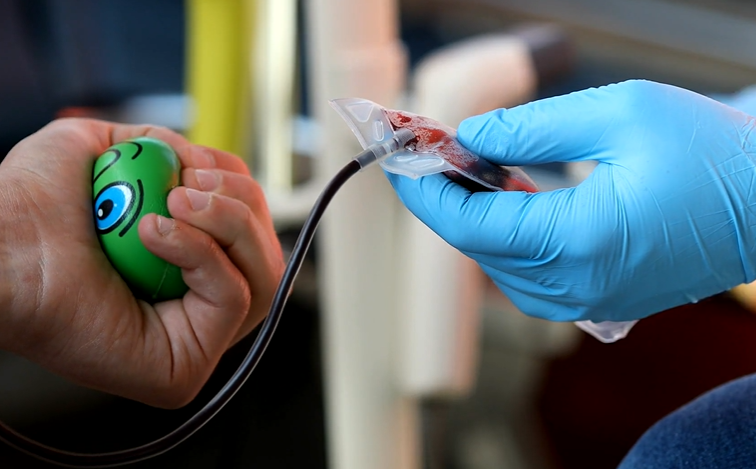Key Takeaways:
- Plasma donation plays a vital role in saving lives and improving the health of individuals who rely on plasma-derived medications.
- To be eligible for plasma donation, you must be in good health, meet age and weight requirements, and not have any chronic or acute medical conditions that could pose a risk.
- Prior to your plasma donation appointment, it is important to stay well-hydrated, eat a nutritious meal, and get a good night’s sleep.
- Donors must be at least 18 years old and meet the minimum weight requirement, which is typically around 110 pounds.
- Disclose any medical conditions and medications you are taking, as they may impact your eligibility to donate plasma.
- Lifestyle factors such as high-risk behaviors or travel to certain countries may affect your eligibility for plasma donation.
- The plasma donation process involves registration, medical screening, a physical examination, and the actual donation procedure using an apheresis machine.
- Proper preparation, staying hydrated, maintaining a healthy diet, and managing post-donation symptoms can contribute to a successful donation experience.
1. Determining Eligibility: Are You a Good Candidate for Donating Plasma?
Plasma donation plays a vital role in saving lives and improving the health of individuals who rely on plasma-derived medications. If you are considering donating plasma, it is important to determine whether you meet the eligibility criteria. By understanding the requirements and preparing adequately, you can ensure a successful donation process.
Why is plasma donation important?
Plasma, the liquid component of blood, contains valuable proteins that are used to develop therapies for various medical conditions. Donated plasma is frequently used to produce medications for individuals with immune deficiency disorders, bleeding disorders, and other life-threatening conditions. By donating plasma, you can contribute to the production of these life-saving medications and help improve the quality of life for many patients.
Who is eligible to donate plasma?
To be eligible for plasma donation, certain requirements must be met. Firstly, you must be in good health with no chronic or acute medical conditions that could pose a risk to you or the recipients of the plasma-derived medications. These may include infectious diseases, heart disease, or certain autoimmune disorders.
Secondly, age and weight requirements must be met. Most donation centers require donors to be at least 18 years old, although some may accept donors as young as 16 with parental consent. Additionally, you must meet the minimum weight requirement, which is typically around 110 pounds. These requirements ensure that donors have a sufficient blood volume to safely donate plasma without experiencing adverse effects.
Preparing for your plasma donation
Prior to your plasma donation appointment, there are several steps you can take to ensure a successful and comfortable experience. Proper preparation can also help maximize the amount of plasma that can be collected during your donation.
Firstly, make sure you are well-hydrated in the days leading up to your donation. Drinking plenty of water can increase blood volume and make the donation process more efficient. Avoid caffeine and alcohol, as these substances can dehydrate the body.
It is also important to eat a nutritious meal before your donation. Including foods rich in iron, such as leafy greens, red meat, and beans, can help maintain your iron levels and prevent post-donation fatigue. Avoid fatty and greasy foods, as these can affect the clarity of your plasma and make it unsuitable for donation.
Finally, get a good night’s sleep before your appointment. Being well-rested can help ensure that your body is in optimal condition for plasma donation.
2. Understanding the Requirements: What You Need to Know
Before donating plasma, it is crucial to have a comprehensive understanding of the requirements involved. This includes age and weight requirements, health conditions and medications, as well as lifestyle factors that may affect your eligibility.
Age and weight requirements
Most plasma donation centers require donors to be at least 18 years old. However, some centers may accept 16 and 17-year-olds with parental consent. These age restrictions are in place to ensure that donors are capable of making informed decisions regarding their health and are physically mature enough to tolerate the donation process.
In addition to age requirements, donors must also meet the minimum weight requirement, which is generally around 110 pounds. This weight requirement helps ensure that donors have enough blood volume to safely donate plasma without experiencing adverse effects.
Health conditions and medications
Prior to donating plasma requirements, it is important to disclose any medical conditions or medications you are currently taking. Certain health conditions, such as infectious diseases, cardiovascular disorders, or autoimmune disorders, may disqualify you from donation due to potential risks to your health or the health of the recipients of plasma-derived medications.
Similarly, certain medications may also impact your eligibility to donate plasma. Medications that can have an effect on blood coagulation or alter the composition of plasma may make your donation unsuitable. It is important to provide accurate information about your medications to ensure the safety and efficacy of the donated plasma.
Lifestyle factors and eligibility
Several lifestyle factors may affect your eligibility to donate plasma. Individuals who engage in high-risk behaviors, such as intravenous drug use or unprotected sex, may not be eligible to donate due to the potential risk of transmitting infectious diseases through donated plasma.
In addition, individuals with a history of travel to certain countries or regions with a high prevalence of infectious diseases may be temporarily deferred from plasma donation. This is to ensure the safety of the donated plasma and prevent the transmission of diseases to patients receiving plasma-derived therapies.
3. The Donation Process: What to Expect
Once you have determined your eligibility and prepared adequately, it is important to understand what to expect during the plasma donation process. Familiarizing yourself with the donation procedure can help alleviate any anxiety and ensure a smooth and comfortable experience.
Arrival and registration
Upon arrival at the donation center, you will be required to register and provide necessary identification and health information. This may include a valid ID, proof of address, and a detailed medical history questionnaire. It is important to provide accurate and truthful information during this process to ensure the safety and suitability of your donation.
Medical screening and physical examination
Before proceeding with the donation, you will undergo a medical screening process to assess your overall health and identify any potential risks. This may involve measuring your blood pressure, pulse, and temperature. A medical professional will also review your medical history and ask specific questions related to your health and lifestyle.
In addition to the medical screening, a physical examination may be conducted to ensure you are in good physical condition to donate plasma. The examination may include a brief check of your veins to ensure they are suitable for vein puncture.
The donation procedure
Once you have passed the medical screening and physical examination, you will proceed to the donation area where the actual plasma donation will take place. The procedure typically involves the use of an apheresis machine, which separates the plasma from your blood and collects it in a sterile bag or container.
During the donation, a needle will be inserted into your arm, similar to the process of donating blood. The blood will be drawn into the apheresis machine, which will separate the plasma from the other blood components. The remaining blood components, such as red blood cells and platelets, will be returned to your body.
The duration of the plasma donation process may vary, but it generally takes around 60-90 minutes. During this time, it is important to remain still and relaxed to ensure a smooth donation.
4. Tips for a Successful Donation: Maximizing Safety and Satisfaction
To ensure a successful and comfortable plasma donation experience, there are several tips and strategies you can follow. These include preparing for your donation appointment, maintaining hydration and a healthy diet, and managing post-donation symptoms.
Preparing for your donation appointment
Prior to your donation appointment, it is important to stay well-hydrated and maintain a balanced diet. Drinking plenty of water in the days leading up to your donation can help increase blood volume and make the donation process more efficient. Avoiding caffeine and alcohol is also recommended, as these substances can dehydrate the body.
Eating a nutritious meal before your donation is also essential. Including foods rich in iron, such as leafy greens, red meat, and beans, can help maintain your iron levels and prevent fatigue after donation. Avoiding fatty and greasy foods is advisable, as these can affect the clarity of your plasma and make it unsuitable for donation.
Hydration and diet tips
Proper hydration is crucial both before and after your plasma donation. Drinking plenty of fluids, especially water, can help replenish the lost plasma volume and prevent dehydration. It is recommended to continue hydrating well in the hours and days following your donation.
In terms of diet, it is important to maintain a balanced and nutritious eating plan after donation. Including foods rich in vitamins and minerals can help support the body’s recovery process. Foods high in iron, protein, and antioxidants are particularly beneficial.
Managing post-donation symptoms
After donating plasma, you may experience certain symptoms such as lightheadedness, dizziness, or fatigue. These symptoms are generally mild and resolve on their own within a short period. However, there are certain measures you can take to manage these symptoms and enhance your overall recovery.
Firstly, it is recommended to rest and relax after donation. Take some time to sit or lie down and allow your body to recover. Avoid engaging in strenuous activities or heavy lifting for a few hours following the donation.
Additionally, consuming a small snack or meal rich in carbohydrates can help alleviate symptoms of lightheadedness and replenish energy levels. Drinking fluids, especially those containing electrolytes, can also help rehydrate the body and alleviate any post-donation symptoms.
In conclusion, donating plasma is a noble act that can save lives and improve the health of individuals in need. By understanding the requirements and preparing adequately, you can ensure a successful donation experience. By knowing what to expect during the donation process and following the tips for a successful donation, you can make a significant impact and contribute to the well-being of others.
FAQ
Question: What are the age and weight requirements for plasma donation? Answer: Most donation centers require donors to be at least 18 years old and meet a minimum weight requirement of around 110 pounds.
Question: How does plasma donation contribute to saving lives? Answer: Donated plasma is used to develop therapies for various medical conditions and produce medications for individuals with immune deficiency disorders, bleeding disorders, and other life-threatening conditions.
Question: What should I do to prepare for my plasma donation? Answer: Before your donation, it is important to stay well-hydrated, eat a nutritious meal, and get a good night’s sleep. Avoid caffeine and alcohol, and include iron-rich foods in your diet.
Question: What medical conditions or medications may affect my eligibility to donate plasma? Answer: Certain health conditions such as infectious diseases, cardiovascular disorders, or autoimmune disorders may disqualify you from donation. Some medications that affect blood coagulation or alter plasma composition may also make your donation unsuitable.
Question: Can lifestyle factors affect my eligibility to donate plasma? Answer: Yes, engaging in high-risk behaviors or having a history of travel to certain countries with a high prevalence of infectious diseases may affect your eligibility for plasma donation.
Question: What can I expect during the plasma donation process? Answer: The donation process involves registration, medical screening, a physical examination, and the actual donation procedure using an apheresis machine. The duration of the process may vary, but it generally takes around 60-90 minutes.
Question: How can I ensure a successful plasma donation experience? Answer: To maximize safety and satisfaction, it is important to prepare for your donation appointment, maintain hydration and a healthy diet, and manage post-donation symptoms by resting, eating a snack or meal, and staying hydrated.
Question: What is the importance of plasma donation? Answer: Plasma donation plays a vital role in saving lives and improving the health of individuals by providing valuable proteins used to develop therapies and medications for various medical conditions.




